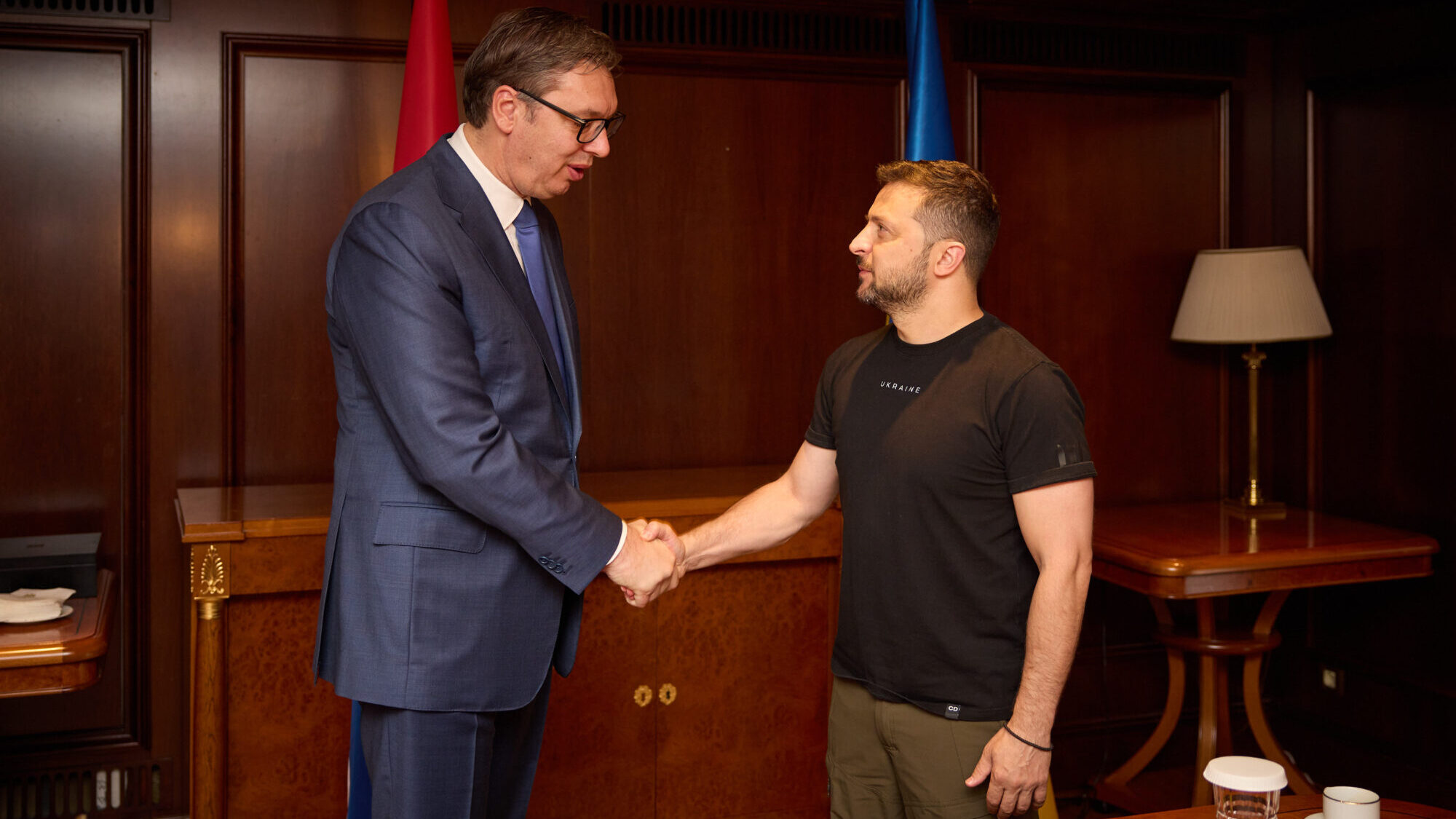
Serbian President Aleksandar Vučić and Ukrainian President Volodymyr Zelensky
Photo: https://www.president.gov.ua/
A senior German MEP has expressed her belief that Serbia has covertly signed a deal with Ukraine to supply Kyiv with arms in exchange for Ukraine not recognising Kosovo. The revelation came after Serbian President Aleksandar Vučić met with Ukrainian leader Volodymyr Zelensky in Athens Monday morning.
Green Party MEP Viola von Cramon, who sits on the European Parliament’s Foreign Affairs Committee, announced on her social media that she thought it was “very likely” that Zelensky and Vučić had struck a covert deal during an informal gathering of EU officials and regional leaders to discuss the integration of the Western Balkans into the EU.
Von Cramon, a member of the Parliament’s official delegation to Serbia, also added that she believed that the arms deal was secured after Ukraine agreed not to recognise Kosovo, an Albanian-majority country that declared independence from Serbia in 2008, and that Zelensky should remember that the plight of Kosovo also mattered to Ukraine.
An open, honest, and fruitful meeting with the President of Serbia @AVucic.
— Володимир Зеленський (@ZelenskyyUa) August 22, 2023
Good conversation on respect for the UN Charter and the inviolability of borders.
On our nations’ shared future in the common European home.
On developing our relations, that is in our mutual interest. pic.twitter.com/t7d9DdUH7M
Serbia has been walking a diplomatic tightrope since the Ukrainian war commenced, with Vučić and his ruling Serbian Progressive Party (SNS) balancing traditionally strong cultural and political ties to Russia with an enduring wish to join the EU.
The Serbian government denied allegations that it was already supplying weapons to Ukraine after a Pentagon leak in February, with Belgrade having a disproportionately large defence industry as a legacy of the Tito era.
Brussels is accelerating its timeline for the accession of the Western Balkans in light of the geopolitical rupture caused by the conflict, with Serbia, Montenegro, Albania, and Kosovo all prospectively looking for accelerated entrance into the EU.
While Serbia has earned criticism from NATO and Western powers for not implementing sanctions against Moscow, at the Athens conference, Vučić voiced his support for full Ukrainian territorial integrity as he denied that Serbian-manufactured arms had ever fallen into the hands of the Russian army during the Special Military Operation against Kyiv.
The status of Kosovo is of major symbolic value to the Serbian government, which considers Kosovo to be a NATO-backed puppet state in the historical core of their nation, with both the EU and U.S. recognising Kosovo as opposed to Russia and many anti-Western governments in the Global South.
Many fear that the integration of both Serbia and Kosovo into the EU could present future challenges for Brussels, with Serbia long suspected of representing a potential Russian fifth column in European affairs due to its shared Slavic and Orthodox Christian heritage.
Despite the EU and the Trump administration brokering a normalisation agreement between the two states, Serbian troops were put on high alert in May following a dispute in northern Kosovo when an ethnic Serb was prevented from taking up his post as mayor by the police.
As part of the integration process, the EU has been nudging Serbia to drop its strident irredentism against Kosovo, with German, UK, and American officials signing an open letter asking Brussels to take a harder stance on Serbian hostility to Kosovo.
Serbian Foreign Minister Ivica Dacic took to the airwaves Tuesday to warn that Ukraine’s recognising of Kosovo would jeopardise the diplomatic status of Cyprus, also partitioned since a Turkish invasion in 1974, as he described how Kosovo wasn’t given full diplomatic recognition at the Athens conference out of courtesy to Serbia.
